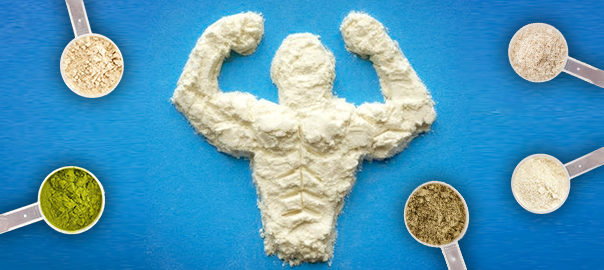Medically reviewed by Dr. Unsa Mohsin.
Been wondering why you haven’t been making enough progress at that gym compared to those guys who you always catch drinking those muscle tonic after their workouts? Surely you’ve been convinced at least once either by your trainer or your fellow gym mates to give it a go and see the differences for yourself. But all the while you’re skeptical regarding its contents and harmful effects to finally surrender to its pressure. Well let’s clear the air today and talk about what this particular post-workout drink or “Protein Shake” is all about.
If you’re working out, mind as well push yourself all the ‘Whey’.
Most of Supplements that you’ve encountered at the gym have a very noticeable ingredient called ‘Whey’. Now what is this ‘Whey’ you ask? Well, let us assure you that it’s not a steroid, growth hormone or any of the other ridiculous claims that people in general make regarding it.
It is quite simply a form of protein which is a by-product of milk that contains essential amino acids, which your body is otherwise not able to make for itself. Studies show that it is proven to increase muscle gain, build strength and even aids in losing weight.
Whey-ing all the options
- Whey protein concentrate: Contains roughly 70–80% protein. It’s the most common type of whey protein and has more lactose, fat and minerals from milk.
- Whey protein isolate: Contains 90% protein or more. It’s more refined and has less lactose and fat, but it also contains fewer beneficial minerals.
- Whey protein hydrolysate: This form is pre-digested, allowing your body to absorb it faster.
Despite its health benefits and sheer effectiveness, you ought to be wondering about how something so convenient can have zero harm.
Does the hustle for that protein shake muscle not come with any side effects?
Although Whey Protein is generally safe and a considerable option for most people who want to increase their protein intake, it is seldom unsettling for others. If you suffer from lactose intolerance, it may be advised to stay clear from particular forms of supplement since it’s generally derived from cow’s milk.
Constipation is also likely for those with a low-carb intake who have reduced their intake of fruit, vegetable and other fiber-related sources. Apart from that, those with cow’s milk allergy (which is quite rare) may also suffer from adverse reactions such as rashes, facial swelling, and a runny or stuffy nose. But not to worry, cow’s milk is not the only source of Whey and there are other Non-Dairy alternatives that are better suited for your preference.
Dairy-based issues getting in the ‘Whey’?
If you’re a strict vegetarian, a staunch animal rights activist or your body simply disagrees with dairy based products, you shouldn’t worry about it putting a dent on your fitness plans so much. Try a Non-Dairy Protein Powder such as soy, pea, egg, rice or hemp protein or even a Whey Protein Isolate which is known to be equally as effective.
To Sum Up
Let’s hope this guide proves beneficial to your journey when it comes to making some gains or if you want to cut weight right in time for ‘Shaadi Season’. You will find that chugging a scoop or two (as recommended) in the morning, or after your workout, might just be what you need to deliver those results you’ve been desperately craving for.
I’ll see you on the bench press, Good day!
Guest Credits: Dr Shayan Imran






